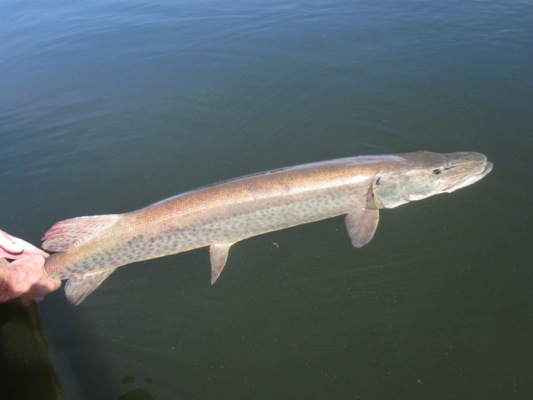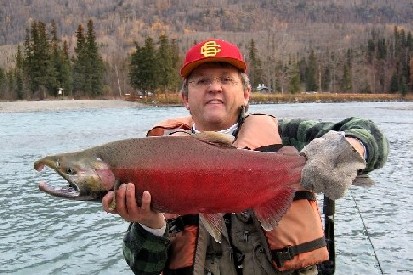|
|

Posts: 8848
| This puts a bit of a twist on the idea of selective harvest...
http://news.yahoo.com/s/ap/20080226/ap_on_sc/evolving_fish;_ylt=Aqo...
"... Peter A. Biro of the department of environmental science at the University of Technology in Sydney, Australia, explained that it's the fast-growing more aggressive fish that tend to get caught, removing them from the breeding pool.
That leaves reproduction up to slower-growing fish who are more timid, he explained in an interview via e-mail.
"This will cause evolution to slower growth rates and slow the rate of recovery for fished populations, and could explain why fisheries tend not to rebound in the manner we expect after we reduce harvest or close a fishery," he said....
Edited by esoxaddict 2/26/2008 9:50 AM
| |
| | |

Posts: 384
Location: Eagle River, Alaska | One studies opinion and I'm not sure how you correlate "netting" fish with actually catching the fish angling.....to my knowledge this whole study would fall apart by not being able to supply any supporting data for this basic premise. Additionally you would really have to look at what fish were stocked....there are so many strains of trout...some which are more active in shallower water and some which hang deeper....doesn't necessarily have anything to do with their foraging habits or ultimate growth potential. There have been many studies done of European brown trout where there are at least 3 different strains in the same lake, each being reproductively isolated....and all of the big browns are fish which live longer, hang deep and become purely piscivorous. By doing so their double their lifespan and get many times larger than the others in the same lake....they are commonly referred to as "ferox" trout. Way too many variables to accept their conclusion with how the experiment stated it was done. | |
| |
|
 Interesting study
Interesting study Interesting study
Interesting study